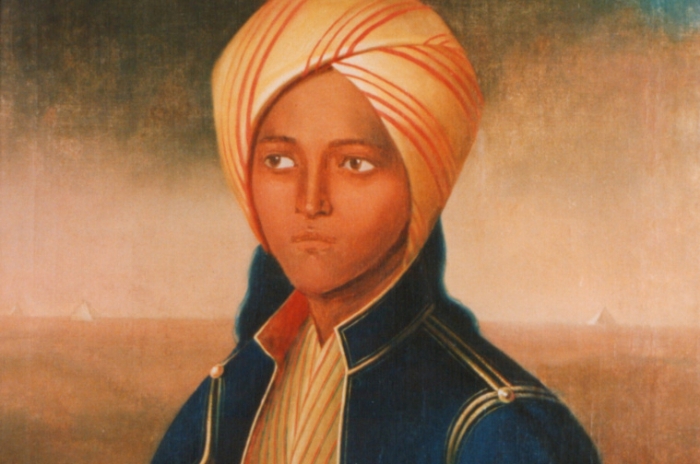
The story of the young woman called Machbuba (1825-1840) is one filled with mystery, intrigue, and insight into the opportunities to which some enslaved women may have had access in the Middle East and Central Europe. Machbuba, formerly Ajiame (“the beloved” in Arabic), is thought to have been a descendent of the Oromo people in Ethiopia. In 1837, in the wake of a war in which the rest of her family had been killed, Machbuba was captured and sent to a slave market in Cairo. Hermann von Pückler-Muskau, on tour across the Middle East, purchased the twelve-year-old who accompanied him on the rest of his journey. The prince’s fondness for Machbuba grew during their travels across the Middle East and he sought opportunities to show off his young, exotically dressed concubine. She was described as “an Abyssinian, a young woman, wrapped from head to toe in Egyptian fashion” by a noblewoman the couple visited in 1838.
In his popular travel books, Pückler-Muskau wrote about Machbuba’s daily activities and her exemplary personal hygiene, but also of her grace, her strict diet, her thirst for knowledge, and her impressive skills in learning foreign languages. After returning to Europe with Pückler-Muskau, Machbuba gained access to the upper echelons of society and was able to pursue her intellectual interests by attending scientific lectures, the theater, and private events.
“Incidentally, it goes without saying from the outset that I am too conscientious and too free a Prussian to treat her as a slave now. When she entered my house, she became free, although I fear that she still has no clear idea of this state of affairs,” Pückler-Muskau wrote. Yet concern for his social status amidst rising rumors surrounding his relationship with Machbuba led the prince to distance himself from her even as she fell ill with tuberculosis. Machbuba died in 1840 in Bad Muskau.
– Madelyn Bourgoine (University of Missouri)
See Kerstin Volker-Saad and Hella Kaiser, “Das Rätsel der Machbuba,” Der Tagesspiegel (27 Dec. 2017). www.tagesspiegel.de/wissen/die-abessinierin-im-gefolge-fuerst-puecklers-das-raetsel-der-machbuba/20793600.html.